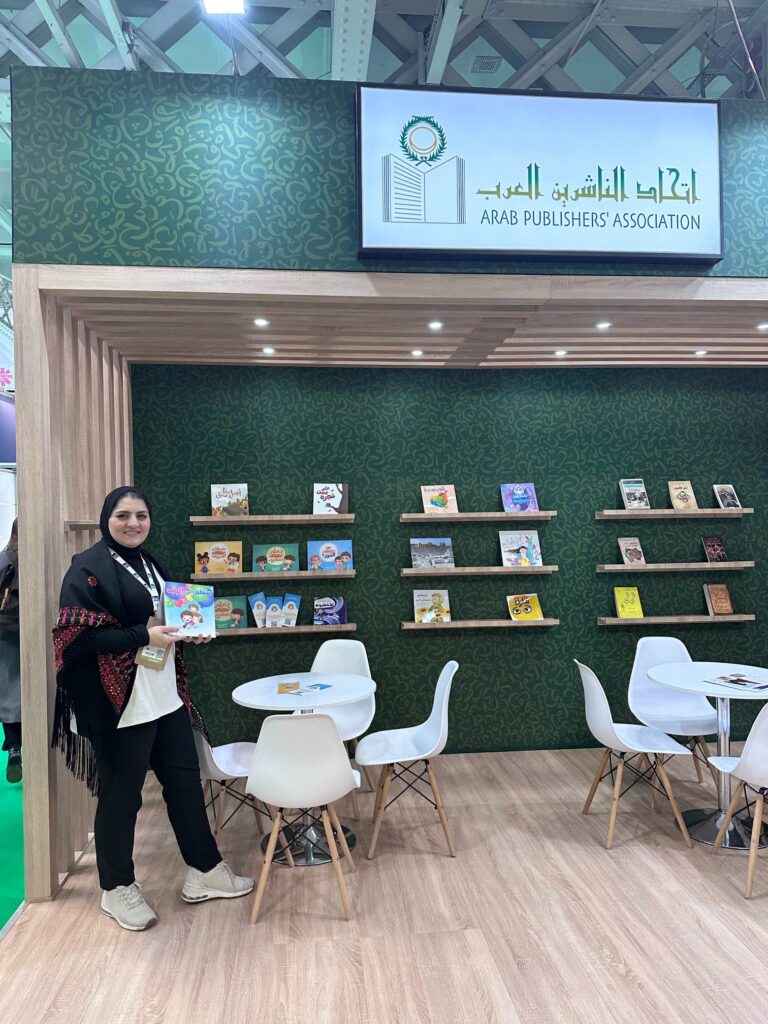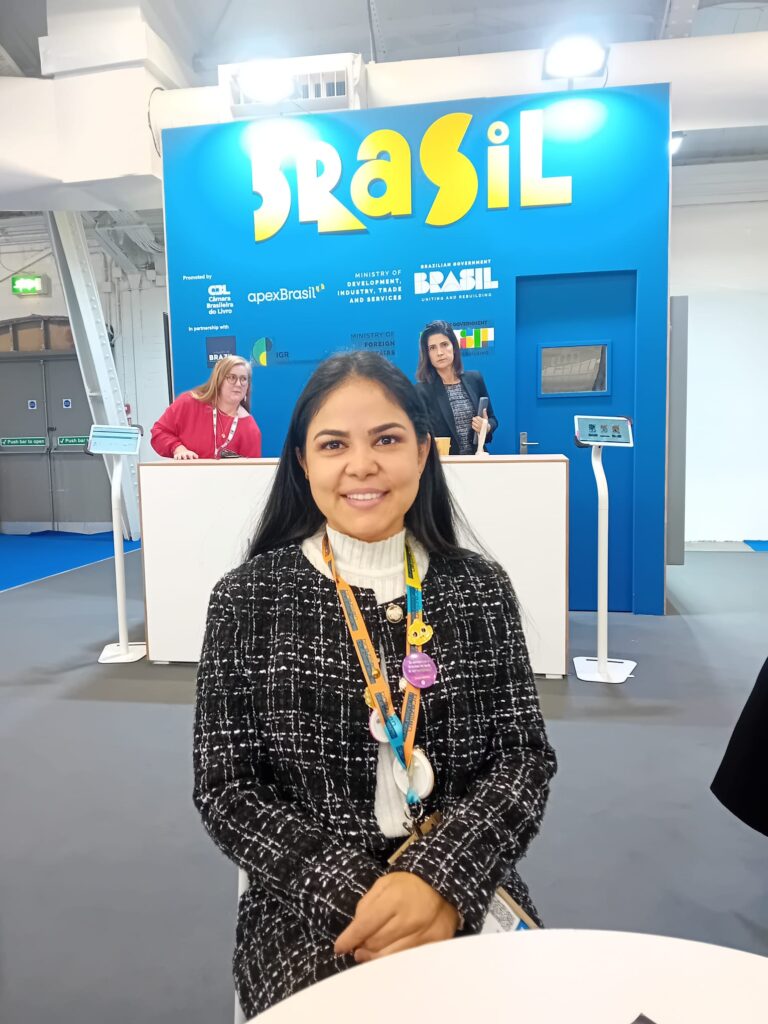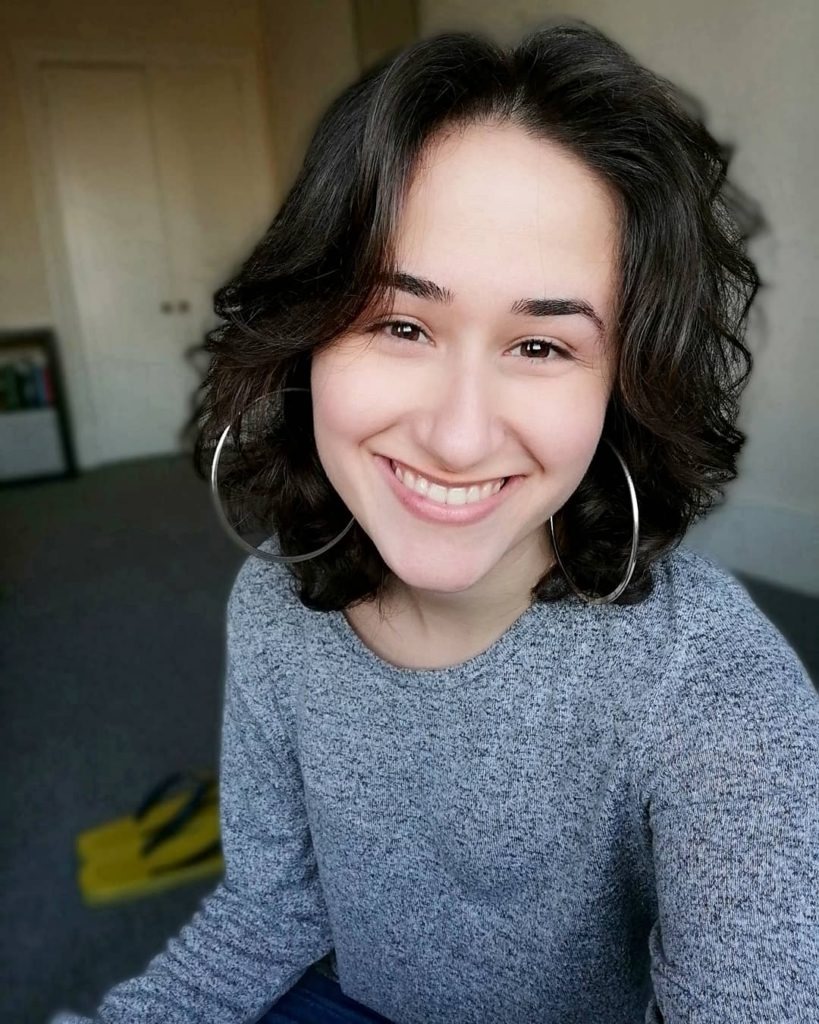At this year’s London Book Fair, our editor explored the experiences of ethnically diverse women in the publishing industry.
Words by Isadora Bueno Bastos
Photo by Patrick Tomasso
The London Book Fair has been a cornerstone in the publishing industry for over 50 years. It is a place where publishers meet customers and wholesalers and discover new industry services. Students and visitors roam the stands, peeking at new releases. The fair is vibrant; the carpets are colourful to mark different areas for different exhibitors, and the little passageways between stands are filled with people chatting and zooming past.
It’s important to note that most attendees at the event were white. A 2022 survey showed that only 17% of the publishing workforce identified as being from an ethnic minority.
When visiting the 2024 London Book Fair, I interviewed several women with different roles within the industry. Some were migrants working in the UK, and some were representing their country’s publishing industry and institutions at this major event. All had very particular, personal takes on it.
Given women’s historical struggle to access literature and write their own stories—a struggle that persists today—it is amazing to see a thriving industry that creates and sells books and is dominated by women. In 2022, a whopping 66% of the industry in Britain identified as women.
However, this article is not simply about women in the industry; it is about ethnically diverse women making moves during one of the largest events within the industry and how they feel about this experience. It may be unsurprising to the reader when I say I did not find surveys showing how many migrant women occupy a space in the industry today. So, I spoke to a few of them instead.

Perspectives of Ethnically Diverse Women Working in Publishing
One of the first points brought to my attention was the language barrier. Lina Abusamha is a volunteer at the Arab Publishing Association and was working at their stand, where she showcased her books. She is from Jordan, originally Palestinian, and is completing her masters in Publishing Studies in Scotland at the University of Stirling.
When asked about what it is like to work in publishing, Lina said that she finds it hard to be confident enough to apply for jobs in an industry that depends so much on language; “If I spoke better English, I believe I would be very confident, and I would get very good opportunities.” The language barrier is a problem for migrants in all industries. However, in one where language is the foundation, finding work as a migrant might prove to be even harder.
On the topic of diversity in the industry, Lina mentioned a seminar she attended the day before. The speaker said that the room reflected the industry, and she was one of the few representing a minority: “It was just me and three others, among thirty, thirty-plus persons.” However, the seminar also inspired her to learn how minorities can have jobs and grow in this industry. Lina hopes to take advantage of this interest in diversity because she would like to learn more about the UK publishing market. The interview with Lina left me thinking about how many migrant women might not apply or simply not get work because of their language skills. No matter how brilliant or how capable we are, are the chances really fair?

Carol Reyes, from Grupo Planeta, is originally from Mexico, where she resides. She travelled for work to represent the company at LBF. Her company promotes the translation of literature from Mexico and Latin America into English, making it more accessible to other groups.
Carol started by saying she finds it much harder for women to break into the industry, but she believes we now have more power and space being created for us “to grow and be better in the industry.” However, my research shows that the number of women in publishing has remained at a “relatively consistent” 66% in the last few years.
She made a point that women can write interesting, different, and enriching pieces, which people are now more drawn to, so space is slowly being created. However, despite this optimistic approach, Carol also believes there are points to be improved, “it would be great if they could have more room for women for their promotions. We usually work in a place, work there for a long time, and are looking for a new role and professional growth. I think that recognition would be the foundation for us to do even more.” Although this is becoming true in the UK, where women make up 52% of the executive leadership roles in publishing, it is not yet true everywhere; in a 2017 article by The Guardian about women in publishing in the US, 40% of the respondents at board and executive levels were men, while powerhouse women had also been replaced by men.

Breaking Boundaries: Despite the challenges, women are changing the face of the publishing industry
Rayana Pereira is the coordinator of international relations for Câmara Brasileira do Livro (CBL) in the project Brazilian Publishers. This project aims to bring Brazilian literature to the rest of the world and sell their rights. Despite living in Brazil, Rayana travels all over the world with CBL, visiting fairs in London, Bologna, Bogota and more.
Rayana told me that CBL now occupies a seat at the table in these events, gaining notoriety internationally. She stated, “Because CBL is such a respected institution, I believe this respect is extended to those who do it, and those who do it are women.” Most of CBL’s twenty-five-person team is made up of women, with only three men, and Rayana went further to say she was never mistreated in these spaces due to being a woman. There is, in fact, a lot of interest in their work, and there is a natural interest in Brazil, its culture and its people, especially after Brazilians have become more recognised, winning literary awards worldwide.
Despite this positive insight, Rayana pointed out that women do not occupy leadership roles in publishing; “it is about a social movement outside of publishing,” she stated. Like Carol, Rayana points out that there needs to be more room for women to grow, and take over executive roles within the industry and altogether in society. CLB has a woman as their director, but Rayana says, “This does not reflect the industry.” To fix this issue, her suggestion is “we must educate men […] we cannot raise children as we have in the past.” Most interestingly, she mentioned that women are the majority in the industry and the majority of readers, yet they are not occupying higher roles. She closed by mentioning that, for us to help women, we must work with social programs to help women grow professionally.

My last interviewee was Yvonne*, who is working under China International Book Trading Corporation (CIBTC) as a sales executive. Yvonne moved to the UK from China years ago to study. She decided to stay and acquired a PSW Visa, also known as a Graduate Visa, and work, however, her job would not support her to remain, and so, Yvonne had to find another role that would, and that was with CIBTC. She did not have a background in sales but said it was an opportunity to “learn something new.” She was able to stay in the UK by finding a company from her country, with Chinese leadership. This made me question why she couldn’t find other roles or jobs that would support her in staying with UK-based publishers.
It did not escape me that the women interviewed for this article were not all migrants in the UK; however, I found it very telling that those who did migrate got roles (volunteering or not) to attend this major event with publishers from their own culture and even country.
In general, globally speaking, women need more room in the industry regarding leadership. However, I found an uncomfortable truth myself: I was unable to find women from ethnically diverse backgrounds/migrant women working as editors, commissioning editors or even proofreaders. I found incredible women studying and working in the UK coming from their countries to represent their local literature and gain visibility for their languages and countries. All of these women were, in their own way, making room for ethnically diverse/migrant women to break into the industry in the UK. Still, the fact that I could not find more than four women, none in a leadership role in a UK-based publisher or in the creative process sectors, such as editing and artistic development, tells me our work is not yet done.
*Alias used in place of her real name.

Isadora Bueno Bastos is a Copy Editor/Proofreader at Migrant Women Press. She graduated from the University of Glasgow with degrees in Theatre Studies and English Literature and an MSc in Translation Studies.